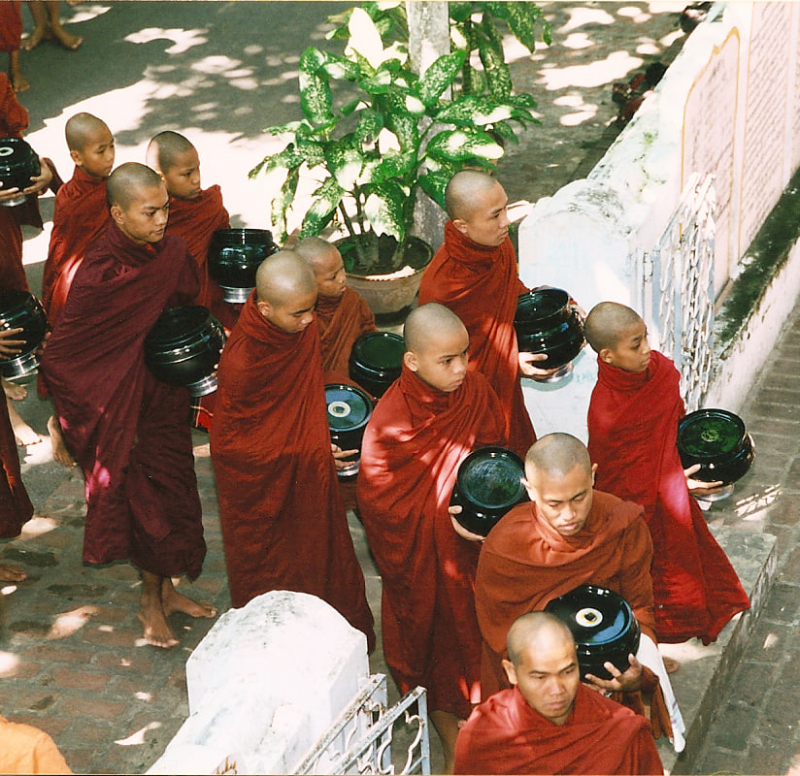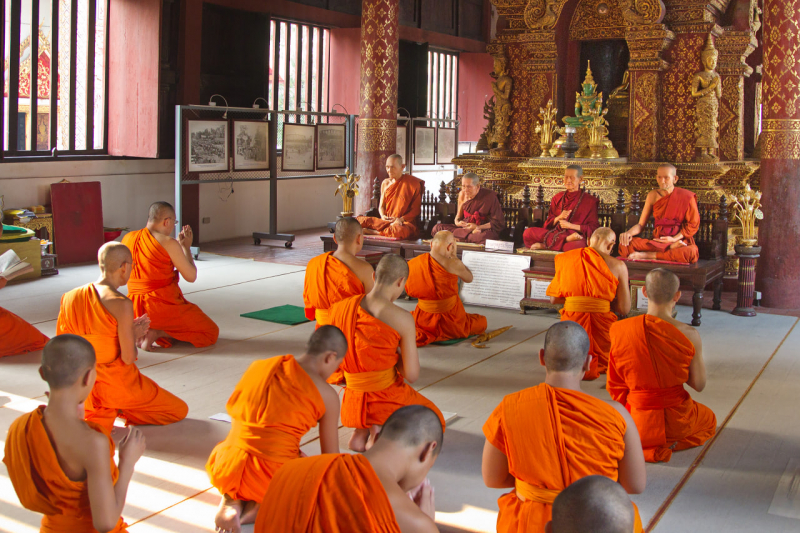Monastic Practices
Monastic practices encompass an array of disciplines and routines embraced by monks and nuns within monastic communities. These practices are meticulously crafted to bolster spiritual evolution, nurture ethical comportment, and facilitate the pursuit of enlightenment.
Central to monastic existence is relinquishing worldly attachments, a tenet harmonized with embracing an uncomplicated lifestyle. Monks and nuns typically lack personal belongings and reside within communal enclaves like monasteries or nunneries. Adherence to a regimented daily schedule is the norm, encompassing meditation, study, and collective engagements.
Monks commonly embark on alms rounds, receiving sustenance from lay patrons. In some traditions, monastics engage in forest monasticism, retreating to natural settings for solitude and intensive meditation. Further, pilgrimages to sacred locales and immersion in retreats may be undertaken by monastics, enriching meditation practices, and kindling profound spiritual insights.
Monastic practices, guided by the principles of ethical conduct, mental development, and wisdom, provide a structured framework for individuals seeking a path of spiritual awakening and liberation from suffering. These practices not only benefit the individual practitioner but also contribute to the broader Buddhist community and the propagation of the Dharma.












